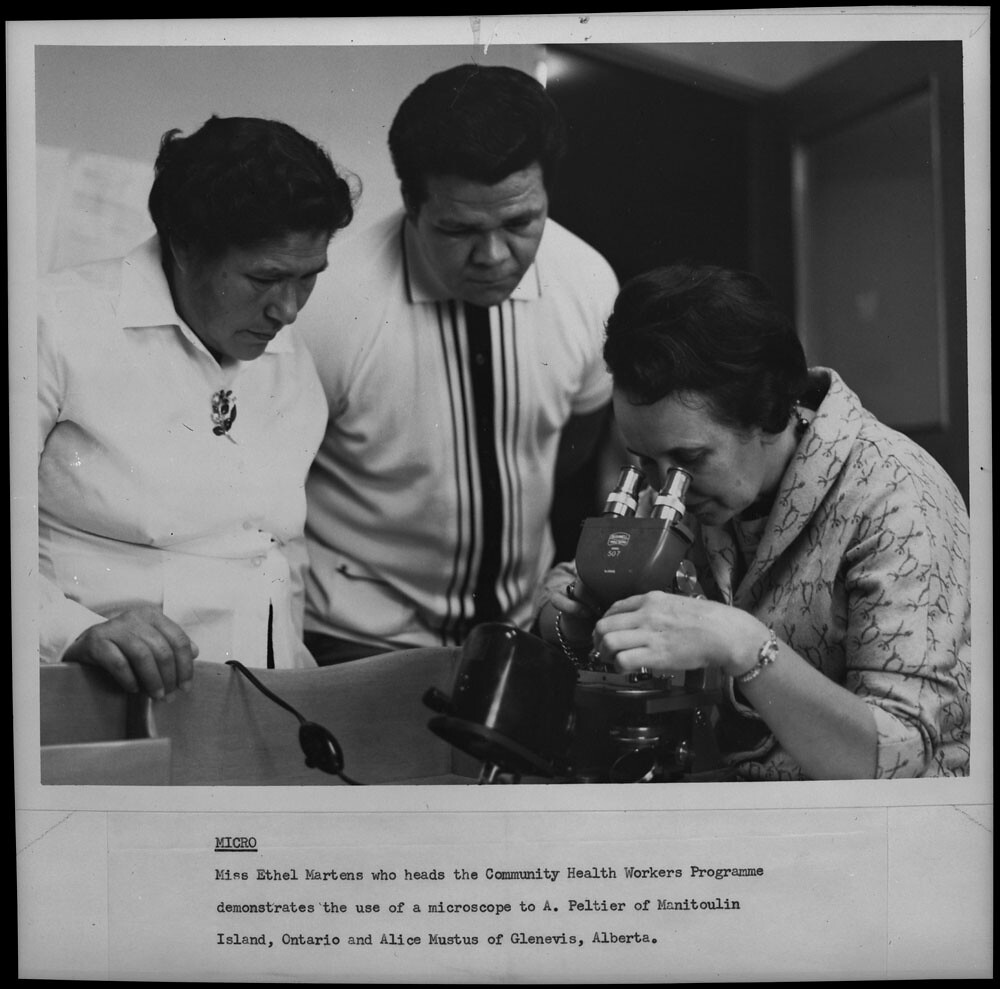
One of the first health educators in Indigenous communities in Northern Canada - Dr. Ethel G. Martens
Dr. Ethel G. Martens
Section 47, Lot 216, Grave 2
Born July 19, 1916 in La Pas, MB, Ethel Martens began her career as a school teacher in Manitoba. She went on to receive training as a Health Educator from the provincial government, before obtaining a Master’s degree in Public Health from the University of California, Berkeley in 1957. Martens returned to Canada and started work with the Medical Services branch of Health Canada in 1958, starting an illustrious and public-minded career.
At Health Canada, Martens developed a Primary Health Care Training Program which was used to serve indigenous communities in northern Canada. In 1958 she was recruited by the government of Canada to be the first national Health Educator, with responsibility for indigenous Indian and Inuit communities.
After a three-month fellowship with the World Health Organization, spent studying health programs for indigenous people in the United States, Mexico, and Guatemala, she returned to Canada and founded a nationwide program to train community health workers.
After completing her doctorate in Social Preventative Medicine in 1973 at the University of Saskatchewan, Martens was appointed to the position of Associate Professor of Health Education and Community Health at the University Centre for Health Sciences in Cameroon, Africa. She remained there until 1979, after which she returned to Manitoba to become the Executive Director of Northwest Health Clinic in Winnipeg.
By 1982, she had retired from the public sector to Ottawa, where she remained active in her field. Martens served as the first Executive Secretary of the Baha’i International Health Agency.
The Baha'i International Community represents the worldwide Baha'i community, whose members come from every national, ethnic, religious, cultural, and socio-economic background, representing a cross-section of humanity. In this capacity, at the request of the Universal House of Justice, she began working to integrate Primary Health Care into Baha’i development programs in South America, Asia and Africa – 83 counties in total.
Her work created culturally sensitive training programs that enable local people to take responsibility for their own health services. During her career, Martens also served on an Advisory Committee to the Privy Council and worked with the Canadian International Development Agency and the World Health Organization. Her emphasis on preventative as well as curative care is considered to have influenced a broad range of medical workers, and by her example she has been a source of encouragement to women in health care.
Martens was made a member of the Order of Canada on October 31, 1998.
A pioneer in the field of primary health care, she has worked in Canada, Africa and Asia to empower disadvantaged people to improve their lives. As one of the first health educators in Indigenous communities in northern Canada, a member of a CIDA-sponsored public health care team in Africa and Executive Secretary of the Baha'i International Health Agency, she created culturally sensitive training programs to enable local people to take responsibility for their own health services. Her emphasis on preventative as well as curative care has influenced a broad range of medical workers and by her example she has been a source of encouragement to women in health care.
She died shortly after, on December 10, 1998.


